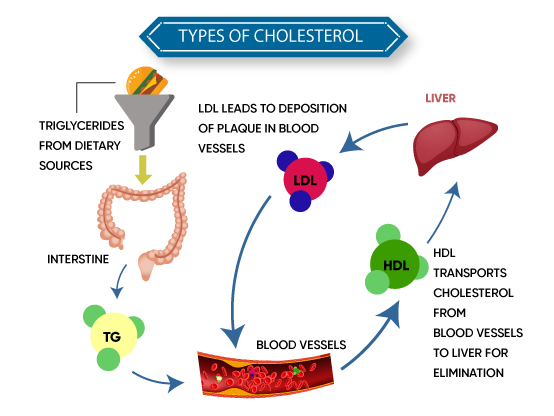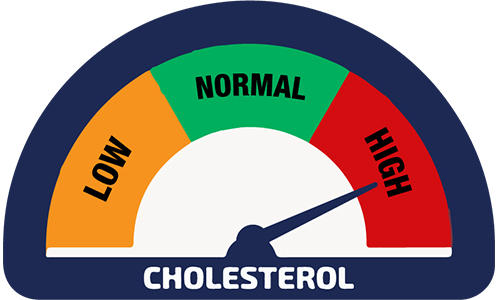
Obesity refers to excess amount of fat in the body. Fat deposition occurs when the calorie intake is more than the calories burnt. Obesity can be determined by body mass index (BMI), which is an estimate of body fat using height and weight of a person. BMI of >30 kg/m² is considered obesity.
Hyperlipidemia (aka dyslipidemia) refers to elevated levels of fats, such as cholesterol and triglycerides in the blood. Cholesterol is a waxy, fat-like substance present in the body cells. It is required to make hormones, Vitamin D and help in digestion. Cholesterol is carried by a protein in the body called lipoproteins.





 Physical activity: Exercise daily for at least 30 minutes. Doing so will improve the HDL levels and reduces the triglycerides and LDL levels in the blood. Muscle-strengthening exercises are of great help but should be done only when recommended by the doctor. However, overweight patients should engage in low-intensity exercise more frequently and for longer durations.
Physical activity: Exercise daily for at least 30 minutes. Doing so will improve the HDL levels and reduces the triglycerides and LDL levels in the blood. Muscle-strengthening exercises are of great help but should be done only when recommended by the doctor. However, overweight patients should engage in low-intensity exercise more frequently and for longer durations.